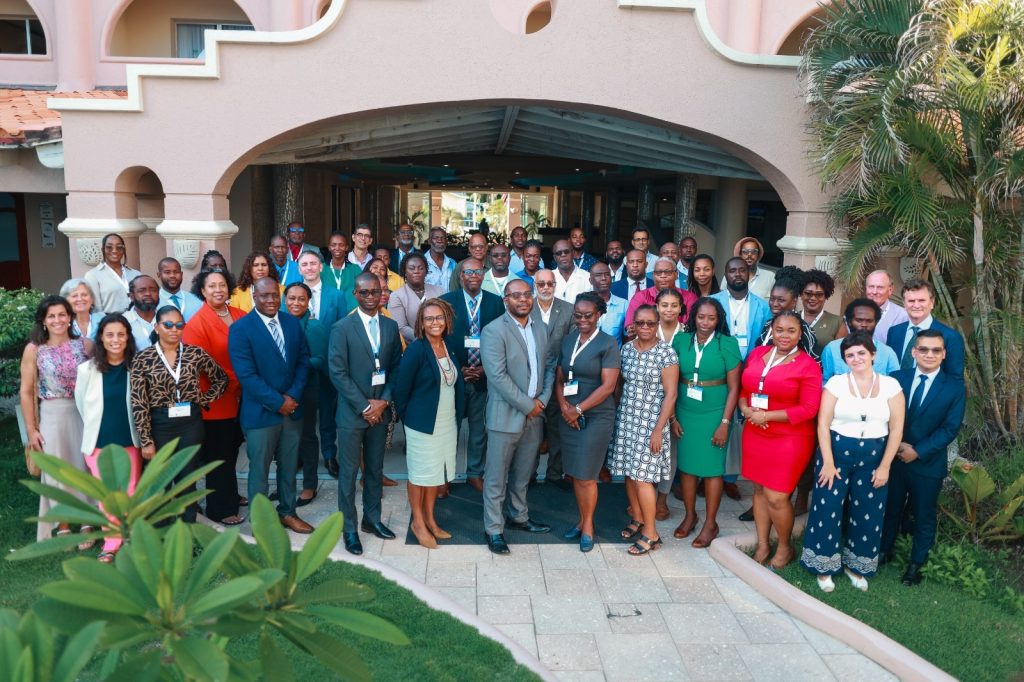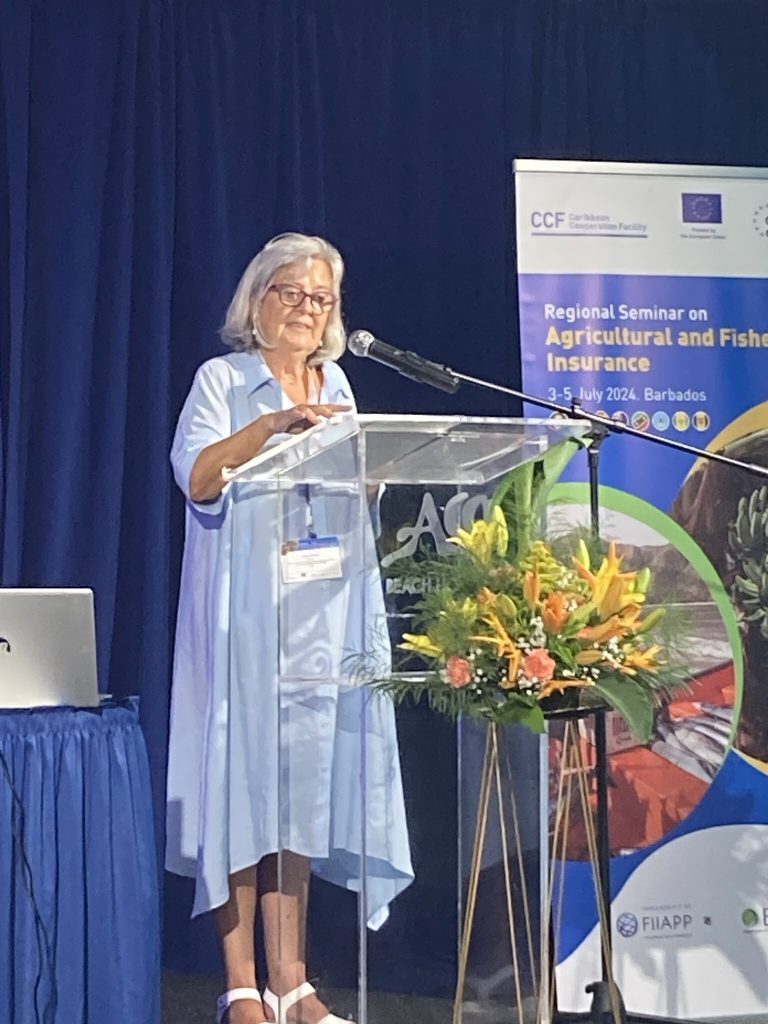In a context of increasing vulnerability to climate change, the Caribbean islands are seeking solutions to ensure the sustainability of their agricultural and fishing systems, which are highly exposed to extreme weather events. From September 4 to 6, 2024, Barbados hosted a regional seminar on agricultural and fisheries insurance, organized by the Organization of Eastern Caribbean States (OECS) and Spanish cooperation through the FIIAPP. The event brought together Caribbean ministerial representatives and experts from Europe and Africa to exchange experiences and explore the best strategies for implementing agricultural insurance systems in Caribbean countries. The event was attended by representatives of CEIGRAM, ENESA, Agroseguro and the Insurance Compensation Consortium who, using the Spanish agricultural insurance system as an example, contributed to the development of solutions adapted to the region.

The Caribbean, a region with a high vulnerability to the effects of climate change, faces increasing challenges for agriculture and fisheries. The increased frequency and intensity of extreme weather events such as hurricanes, droughts or floods and volcanic eruptions have jeopardized the food security and economic well-being of small farmers and fishermen.
In response to this scenario, agricultural insurance has emerged as a fundamental tool to mitigate the effects of these disasters, providing farmers with a mechanism to stabilize their income and protect themselves from economic losses. However, the development of these systems is still incipient in many Caribbean countries. This is where the Spanish model of agricultural insurance, 45 years after its implementation, can serve as an example.
The Spanish model of agricultural insurance, presented by representatives of ENESA, Agroseguro and the Insurance Compensation Consortium, has been recognized as one of the most advanced and efficient globally. This system, based on public-private collaboration, has succeeded in protecting farmers and stockbreeders against the numerous risks to which their activity is subject.

Isabel Bardají, director of CEIGRAM, highlighted that the Spanish system has demonstrated that it is possible to build a sustainable and efficient agricultural insurance scheme that not only protects producers, but also promotes resilience in the face of climate change. Thanks to this advanced insurance system, Spanish farmers can mitigate their losses in the event of extreme weather events.
At the seminar, Ana Tarquis, deputy director of CEIGRAM, emphasized the role of technology and data analysis in improving the efficiency of the insurance system. The introduction of tools such as time series analysis and the use of vegetation indices and satellite imagery has not only allowed for better risk assessment but has also facilitated rapid and fair compensation to affected producers.
CEIGRAM’s participation in the regional seminar in Barbados has highlighted the importance of agricultural insurance as a key tool for risk management in the Caribbean. It has also highlighted the difficulties of implementing an agricultural insurance system in the event of catastrophic and systemic losses. Through the Spanish experience, the seminar demonstrated that it is possible to build an efficient insurance system adapted to the particularities of each region, but based on the cooperation of all countries.
Climate change will continue to be a major threat to agriculture in the Caribbean, and the development of an agricultural insurance system will be crucial to ensure the sustainability of the sector. Public-private collaboration, technological innovation and regional cooperation are the pillars that can enable the Caribbean to implement an insurance system that is resilient and adapted to its needs.



